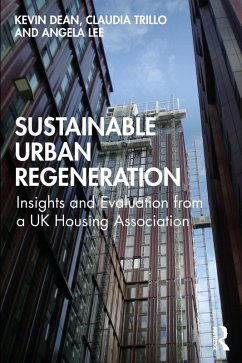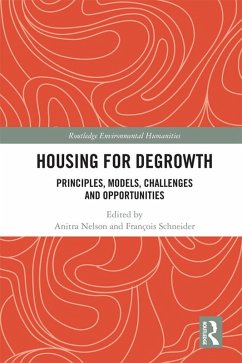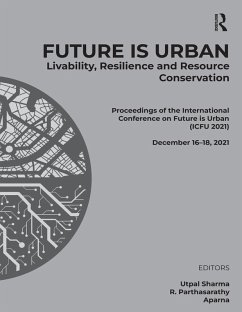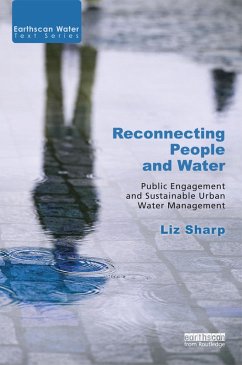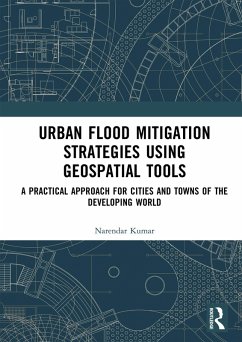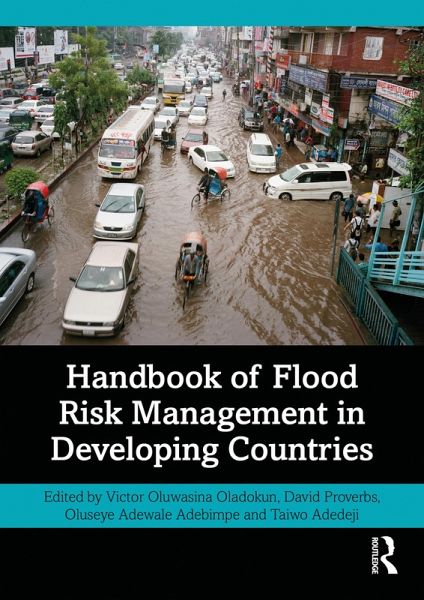
Handbook of Flood Risk Management in Developing Countries (eBook, ePUB)
Versandkostenfrei!
Sofort per Download lieferbar
51,95 €
inkl. MwSt.
Weitere Ausgaben:

PAYBACK Punkte
26 °P sammeln!
This new handbook brings together various views and experiences of the impacts of flooding and its management in Africa, Asia and Latin America by drawing from traditional and modern approaches adopted by communities, homeowners, academics, project managers, institutions and policy makers. Key stakeholders provide insights and perspectives on flood hazards, flood impacts, flood control and adaptation strategies across these regions. The inclusion of policy makers, emergency responders, leaders of key organizations and managers of flood defence projects makes this volume a unique addition to th...
This new handbook brings together various views and experiences of the impacts of flooding and its management in Africa, Asia and Latin America by drawing from traditional and modern approaches adopted by communities, homeowners, academics, project managers, institutions and policy makers. Key stakeholders provide insights and perspectives on flood hazards, flood impacts, flood control and adaptation strategies across these regions. The inclusion of policy makers, emergency responders, leaders of key organizations and managers of flood defence projects makes this volume a unique addition to the flood management literature.
The chapters are organized to reveal various impacts and challenges associated with the management of flooding, including response and recovery. The chapter contributions bring together the different impacts of flooding and propose various mitigation approaches. They describe procedures for managing flooding and reducing the impacts from the perspectives of policy makers, environmental planners and restorers of flood-affected communities. Also, the book considers some of the related aspects including land use, waste management, drainage systems, security challenges, urban planning and development and their contributions to flooding.
The book's primary target is experienced researchers and practitioners in flood risk management. It would also serve as a key text for postgraduate students studying related programmes. Inhabitants of flood prone communities in such developing countries will also find the text an important resource for guidance and understanding. This multi-disciplinary book represents a valuable contribution for a wide range of professionals (e.g. in engineering, built environment, health, retail, etc) who are interested in flood control and management and/or faced with flood-related challenges in the course of their work.
The chapters are organized to reveal various impacts and challenges associated with the management of flooding, including response and recovery. The chapter contributions bring together the different impacts of flooding and propose various mitigation approaches. They describe procedures for managing flooding and reducing the impacts from the perspectives of policy makers, environmental planners and restorers of flood-affected communities. Also, the book considers some of the related aspects including land use, waste management, drainage systems, security challenges, urban planning and development and their contributions to flooding.
The book's primary target is experienced researchers and practitioners in flood risk management. It would also serve as a key text for postgraduate students studying related programmes. Inhabitants of flood prone communities in such developing countries will also find the text an important resource for guidance and understanding. This multi-disciplinary book represents a valuable contribution for a wide range of professionals (e.g. in engineering, built environment, health, retail, etc) who are interested in flood control and management and/or faced with flood-related challenges in the course of their work.
Dieser Download kann aus rechtlichen Gründen nur mit Rechnungsadresse in A, B, BG, CY, CZ, D, DK, EW, E, FIN, F, GR, HR, H, IRL, I, LT, L, LR, M, NL, PL, P, R, S, SLO, SK ausgeliefert werden.





